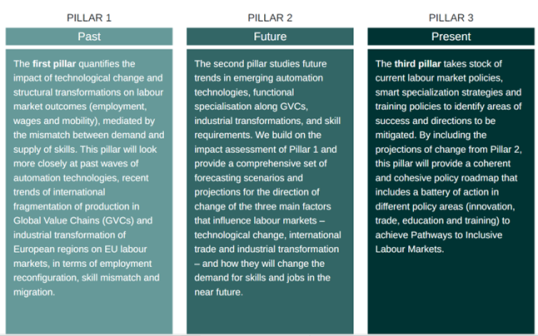The PILLARS: Pathways to inclusive labour market
The EU-funded PILLARS project is providing policymakers and the public with information about what kind of (new) skills will be in demand and on how to revamp education and training systems to create the opportunities to develop them.
It is one of the 13 projects showcased in the Cordis result pack dedicated to the European Year of Skills. The projects were funded through Horizon 2020 programme. The pack aims to contribute to an evidence-based debate on the challenges associated with skills development, such as ensuring that skills are relevant to societal needs, matching the aspirations and skill sets of job seekers to opportunities in the labour market, assessing the impact of new technologies, and increasing the attractiveness of the EU market to workers from abroad.
The PILLARS project consists of ten partners, eight EU partners and two partners in China and Latin America. PILLARS aims to achieve its objectives through the combined efforts of these partners in three pillars:
- Past,
- Future
- Present.
Key findings on skills and their labour market potential
A working paper published under the PILLARS project analysed ‘the value of early-career skills’ by looking at Germany’s apprenticeship system. The authors identified over 13000 cognitive, social, digital, manual, management and administrative skills acquired during apprenticeships and assessed the economic value of people’s early career skills by following workers over their careers in administrative data. They found that skills acquired early in one’s career can boost earnings throughout your working life. The study also found that vocational education, which typically helps develop skills early on, can have a long-lasting positive impact in one’s life.
Another study, also published under the PILLARS project, analysed the participation of elder works in the modern labour market. It found that digital skills are positively related to employment prospects and productivity of older workers and that developing said digital skills enables them to work in high-paying jobs. As a result, the study recommended that policymakers incentivise employers to offer more training for the elderly and fund training programmes in higher education institutions.
To identify which technologies will be relevant in the future, PILLARS is conducting a global survey to around 200000 experts. The results will help design training curricula for all professions that employ new technologies, irrespective of the sector.
Background
Horizon 2020 was the EU's research and innovation funding programme from 2014-2020 with a budget of nearly €80 billion. The programme has been succeeded by Horizon Europe with a budget of €95.5 billion, which is the EU’s key funding programme for research and innovation.
- Project locations
- GermanyUnited KingdomNetherlandsItalyFrance

